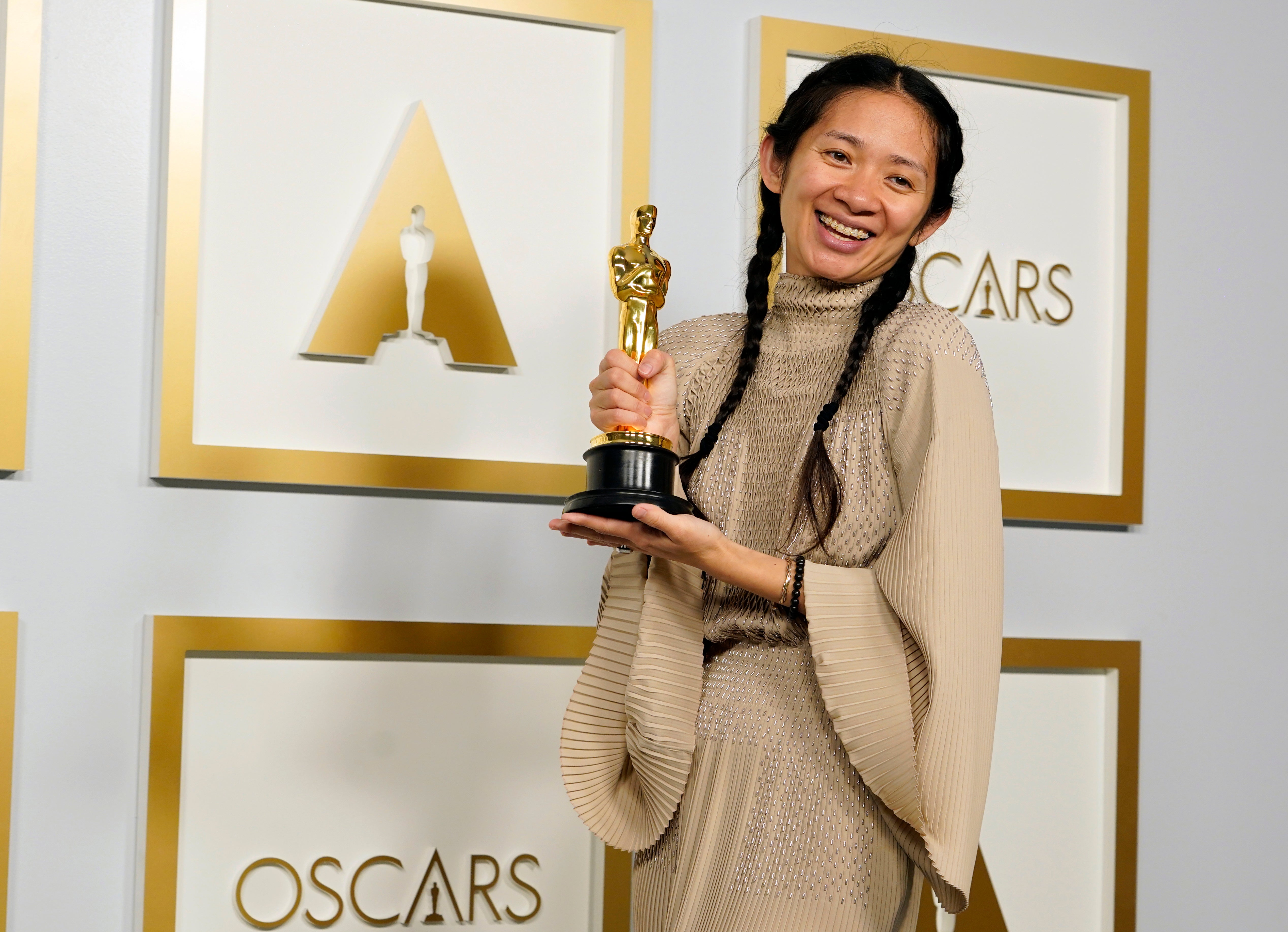Zhao's Oscars get muted reaction, even censorship in China
Chloe Zhao’s history-making Oscars sweep, winning best director and best picture, is being met with a muted response in her country of birth, and even instances of censorship

Your support helps us to tell the story
From reproductive rights to climate change to Big Tech, The Independent is on the ground when the story is developing. Whether it's investigating the financials of Elon Musk's pro-Trump PAC or producing our latest documentary, 'The A Word', which shines a light on the American women fighting for reproductive rights, we know how important it is to parse out the facts from the messaging.
At such a critical moment in US history, we need reporters on the ground. Your donation allows us to keep sending journalists to speak to both sides of the story.
The Independent is trusted by Americans across the entire political spectrum. And unlike many other quality news outlets, we choose not to lock Americans out of our reporting and analysis with paywalls. We believe quality journalism should be available to everyone, paid for by those who can afford it.
Your support makes all the difference.Chloe Zhao s history-making Oscars sweep, winning best director and best picture, is being met with a muted response in her country of birth, and even instances of censorship.
Zhao's “Nomadland” is the second film directed by a woman to win a best picture Oscar. She is the first woman of color and second woman ever to win the Oscars for best director.
Yet, in China, where Zhao was born, her history-making success has not been trumpeted or celebrated. State media in China had yet to celebrate her win by late Monday morning, with CCTV and Xinhua, the two main state media not posting her win.
Instead, there was even censorship. A post announcing Zhao’s directing win by film magazine Watch Movies, which has over 14 million followers on the ubiquitous Weibo microblog, was censored a few hours after it appeared. A hashtag called “Chloe Zhao wins Best Director" was also censored on the platform with users coming across an error message saying, “according to relevant laws and regulations and policies, the page is not found.”
Still, the news of her wins filtered quickly onto the Chinese internet, with individual web users and bloggers cheering Zhao. Many took note of her acceptance speech, in which Zhao quoted a line from a poem written in the 13th century that she, like many other Chinese children, had memorized as a child, which translates as, “People are good at birth."
Zhao faced a nationalist backlash in March when she won a Golden Globe for best director, with internet users in China questioning whether she could be called Chinese and some saying she had insulted her home country in comments on the political system. China's press, television and social media are tightly controlled by the ruling Communist Party, either directly or through self-censorship, and online criticism can frequently result in calls for boycotts of entertainers or name brands.